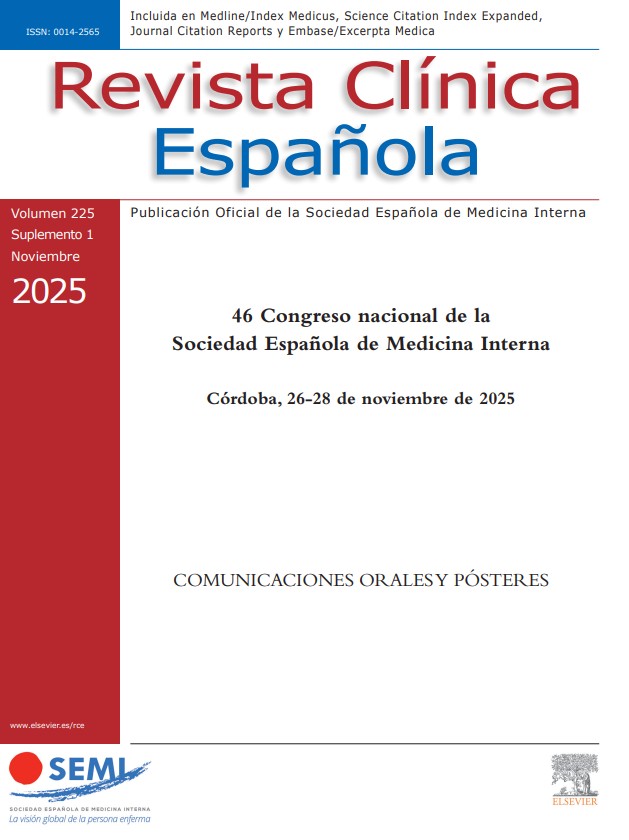Este estudio se propone evaluar el pronóstico de las infecciones del tracto urinario (ITU) tratadas empíricamente con tratamiento antibiótico inadecuado.
Material y métodoEstudio de cohortes prospectivo, de pacientes mayores de 18 años de edad, atendidos en un servicio de urgencias hospitalario entre el 01/02 y el 31/05 de 2007 por síntomas miccionales, acompañados de piuria (>10leucocitos/mm3 de orina no centrifugada) o tira reactiva positiva para nitritos-leucocitos y urocultivo con >103 unidades formadoras de colonias. Se consideró que el tratamiento antibiótico prescrito empíricamente era adecuado si la bacteria aislada era sensible y se había prescrito por un tiempo correcto. Se consideró que hubo fracaso terapéutico cuando persistía la sintomatología tras 5 días de tratamiento. Se registraron la edad, el sexo, la presencia de sonda vesical permanente, el tipo de ITU, hospitalización en los 3 meses previos, la procedencia del paciente y las enfermedades asociadas.
ResultadosSe aislaron 177 bacterias en 168 pacientes. En 29 casos (17,3%) el microorganismo aislado era resistente al antibiótico prescrito. En tan solo 6 pacientes hubo fracaso terapéutico, aunque no precisaron ingreso hospitalario. Los pacientes que vivían en una residencia de ancianos (13,7 vs 2,2%, p=0,015) o que habían sido ingresados durante los 3 meses previos (20,6 vs 4,3%, p=0,039) presentaron un mayor riesgo de recibir tratamiento inadecuado.
ConclusionesEl pronóstico de los pacientes atendidos en Servicios de Urgencias Hospitalarios por ITU con tratamiento antibiótico discordante es favorable en la mayoría de los casos. Sería recomendable la realización de urocultivo en pacientes con mayor riesgo de padecer ITU por un microorganismo resistente.
This study aims to evaluate the prognosis of urinary tract infections (UTI) treated empirically with inadequate antibiotic treatment.
Material and MethodsProspective cohort study of patients over 18 years of age, attended in the hospital emergency service between 01/02 and 31/05 of 2007, due to micturation symptoms, accompanied by pyuria (>10leukocytes/mm3 of uncentrifuged urine) or positive reactive strip for nitrites-leukocytes and urine culture with >103 colony forming units. It was considered that the antibiotic treatment prescribed empirically was adequate if the bacteria isolated was sensitive and had been prescribed for the correct time. It was considered that there was therapeutic failure when the symptoms persisted after 5 days of treatment. Age, gender, presence of indwelling bladder catheter, type of UTI, hospitalization in the previous 3 months, origin of the patient and associated diseases were recorded.
ResultsA total of 177 bacteria were isolated in 168 patients. In 29 cases (17.3%), the microorganism isolated was resistant to the antibiotic prescribed. There was thereaputic failure in only 6 patients, although they did not required hospital admission. The patients who lived in a residential home for the elderly (13.7% vs 2.2%, P=0.015) or who had been hospitalized during the previous 3 months (20.6% vs 4.3%, p=0.039) had a greater risk of receiving inadequate treatment.
ConclusionsThe prognosis of the patients attended in the emergency hospital service due to UTI with discordant antibiotic treatment is favorable in most of the cases. Performing urine culture in patients with greater risk of suffering UTI due to a resistant microorganism would be recommendable.
Artículo
Diríjase desde aquí a la web de la >>>FESEMI<<< e inicie sesión mediante el formulario que se encuentra en la barra superior, pulsando sobre el candado.

Una vez autentificado, en la misma web de FESEMI, en el menú superior, elija la opción deseada.

>>>FESEMI<<<









